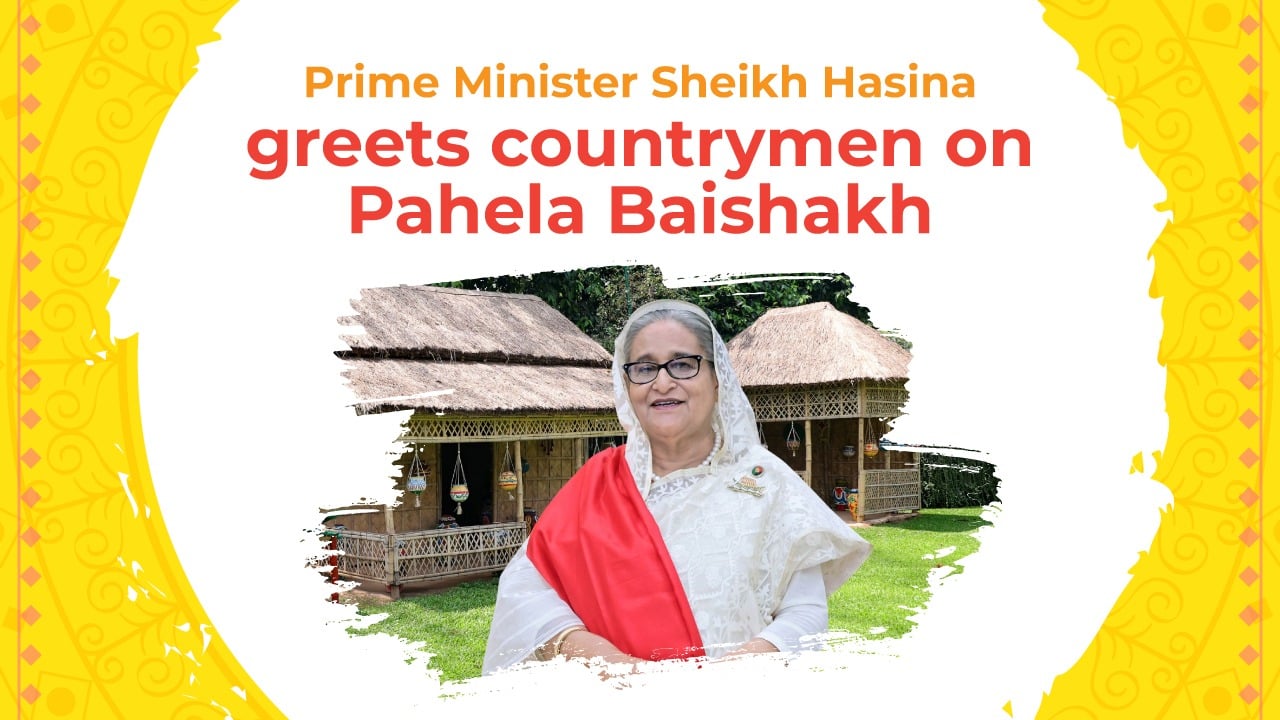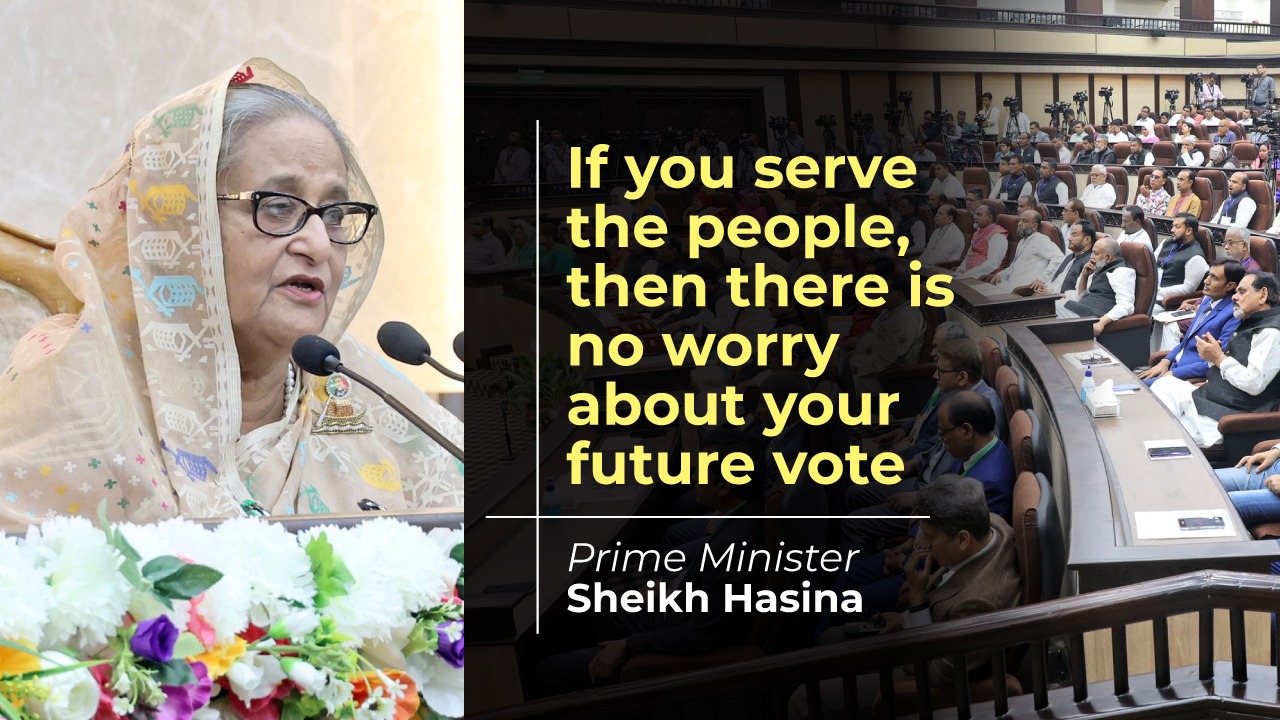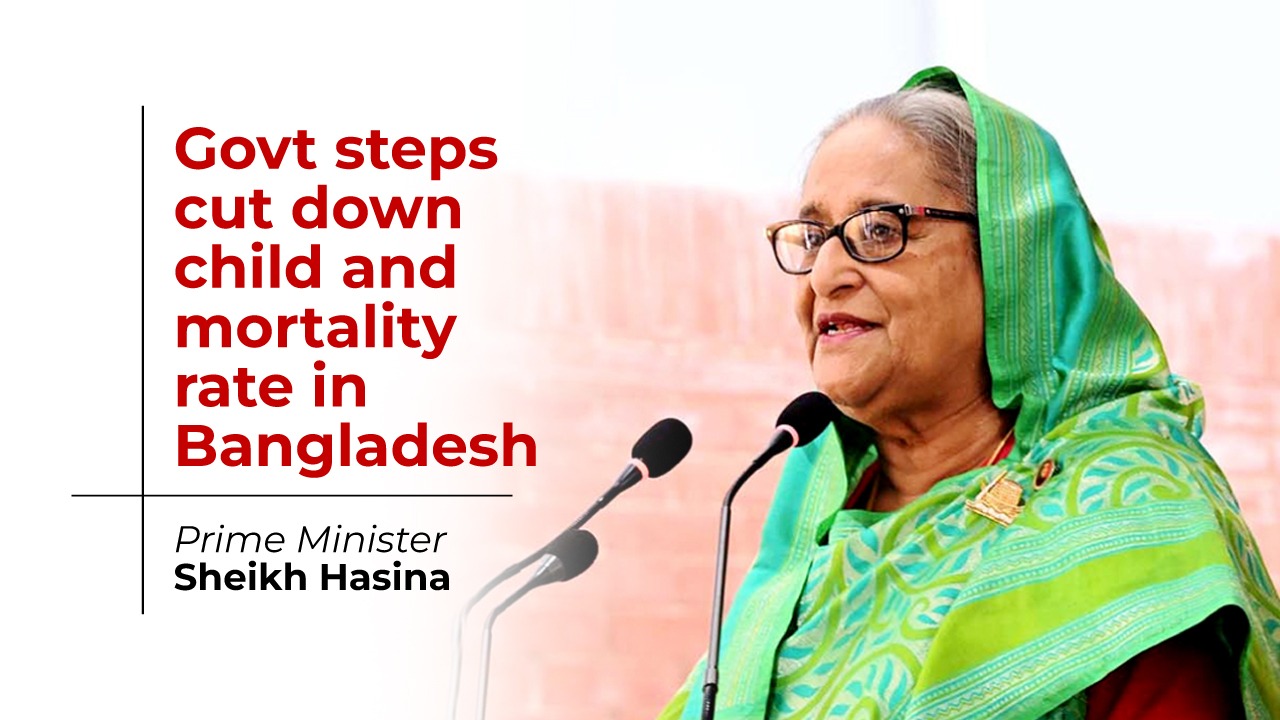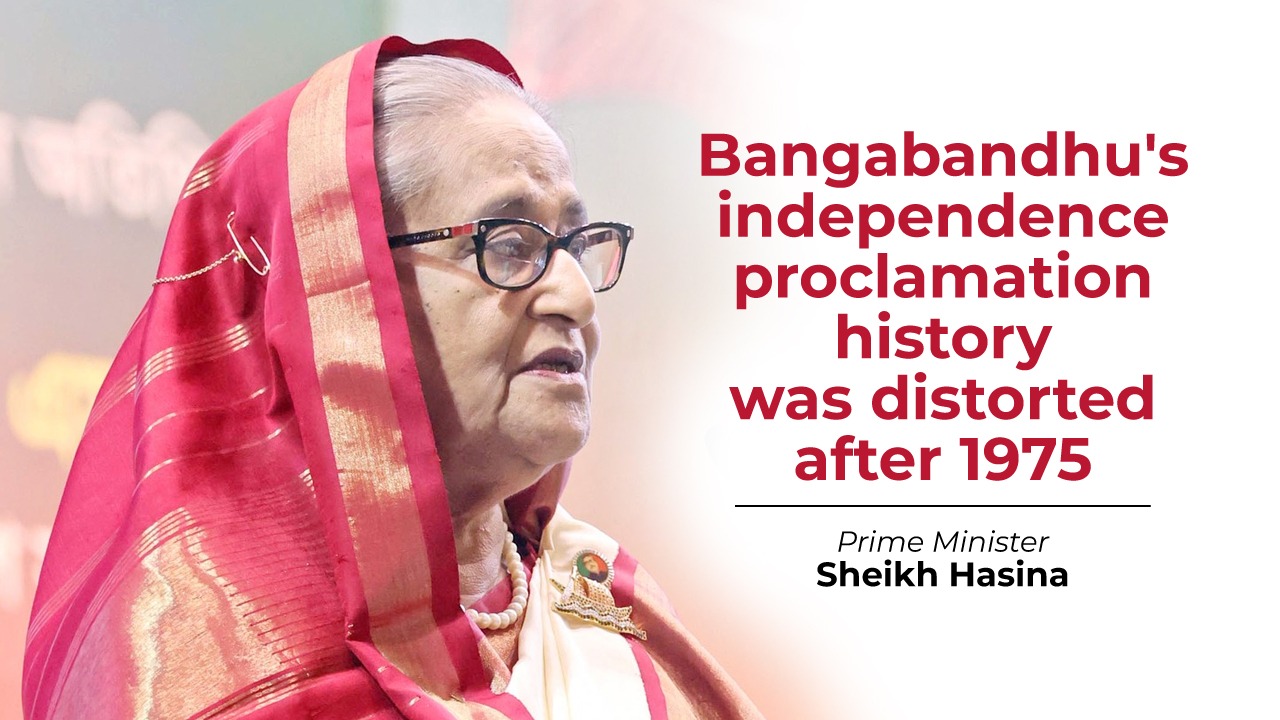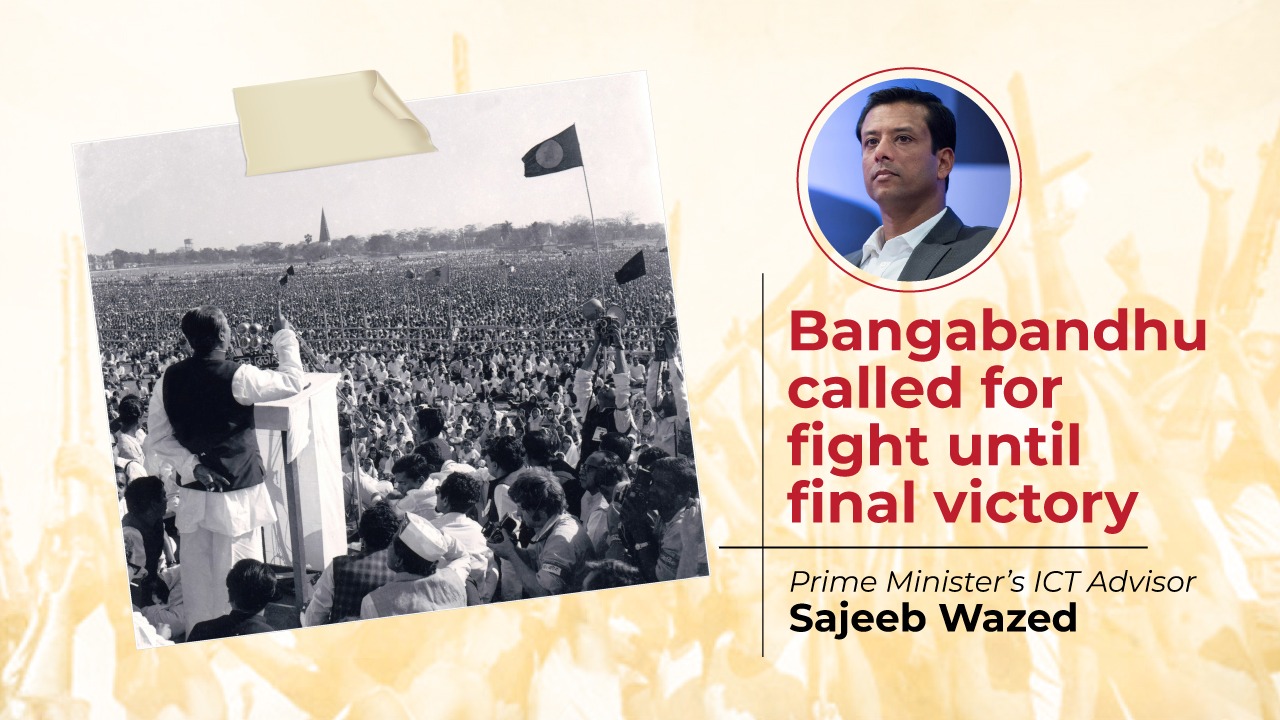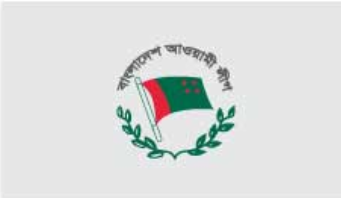4034
Published on January 2, 2022After a long nine-month bloody war against the Pakistani barbaric junta, the Bengali nation achieved its much-desired victory on December 16, 1971. The whole country got decorated with it red-green flags in the air everywhere. But there were the piles of the bodies of three hundred thousand martyrs and the sufferings of more than four lakh tortured mothers and sisters, on the one hand, there were also burst of joy from the freedom of the Bengali nation from the Pakistani monsters amid the mourns of losing the near and dear ones. But even after such momentum, the Pakistani junta carried out an attempt to kill the founder of Bangladesh, Bangabandhu Sheikh Mujibur Rahman in a Pakistani jail.
This was not the first attempt. In the early hours of March 26, Bangabandhu declared independence through wireless. This declaration of independence of Bangladesh was aired in the international media. Meanwhile, a special commando force went and shoot at Bangabandhu's residence on Dhanmondi Road No. 32 before he was arrested and taken away. After that, this best person of the Bengali nation was detained in different places including the Sangsad Bhaban area, Adamjee Cantonment School, Dhaka Cantonment. Finally, he was sent under strict secrecy to a dark prison in West Pakistan on April 1.
He was sent to a remote prison in the warmest city of Lyallpur via Karachi and Lahore. The purpose was to break Bangabandhu physically and mentally in the midst of natural adversity along with the loneliness of the dark solitary confinement. Later, Bangabandhu, the great hero of the Bengali nation, was kept in solitary confinement for the death row convicts in Mianwali Jail in North Punjab. He was kept under constant surveillance in the jail. However, the Pakistani conspiracies went in vain thanks to the indomitable courage and personality of Bangabandhu Sheikh Mujibur Rahman. Therefore the Pakistani junta plotted to assassinate the undisputed leader Sheikh Mujibur Rahman in jail.
The trick of using back date after shooting Bangabandhu to death
In August 1971, a mock trial of the imprisoned Bangabandhu began in Pakistan. They framed 12 charges and sentenced him to death in six charges. Earlier, in May, the international media leaked a conspiracy by the Pakistanis to assassinate Bangabandhu in a firing squad. Then the world leaders interfered and halted it through diplomatic efforts. Though the Pakistani government informed the world that Sheikh Mujib had been given a lawyer so that he could handle the case, they started preparation to hang Bangabandhu.
After the victory in the liberation war of Bangladesh on December 16, Zulfikar Ali Bhutto took over as Pakistan's chief martial law administrator removing the junta chief Yahya Khan. The Yahya urged Bhutto to kill Sheikh Mujib in the firing squad and used backdate as the date of his execution. But international pressure and detention of 93,000 trained army personnel in Bangladesh refrained Bhutto from doing so, rather forcing him to free Bangabandhu.
Earlier, during the Liberation War, Pakistani junta leader Yahya Khan informed US Ambassador Farland that even if Mujib was sentenced to death, his execution would not be carried out any time soon. After this information came to the media, the world leaders warned the Pakistan government and called for the security of Bangabandhu's life. This detailed information is available in the titles of Pakistani researcher Ahmad Salim, the memoirs of Brigadier AR Siddiqui, and the interview given by Bangabandhu to the journalist David Frost.
Conspiracy to assassinate Bangabandhu more than once in jail
Bangabandhu was shifted from one to another jail in Pakistan several times during the Liberation War in Bangladesh. Apart from killing attempts at Mianwali, Faisalabad and Sahiwal, there was another conspiracy to kill Bangabandhu in a solitary confinement cell in the dark cell of Lyallpur Jail in North Punjab, about 150 miles from Rawalpindi. The conspiracy continued in the name of a secret trial. Far from being a prisoner, he was not even allowed to speak alone with his own lawyer in secret courts. Even a transmitter was placed in Bangabandhu's chair so that the Pakistani junta could hear whatever he said.
In the first week of December, realizing the defeat on the battlefield, Pakistani troops dug a grave in front of Bangabandhu's solitary cell at Mianwali prison. On December 4, a secret court-martial in Pakistan sentenced Bangabandhu to death. They started preparing to execute the verdict as Yahya Khan ordered to kill Bangabandhu immediately at any cost. However, the situation on the battlefields of Bengal began to change very quickly on the one hand. On the other hand, the world leaders including India-Russia-France-Britain-Yugoslavia gave the highest warning to Pakistan about the assassination of the elected leader Sheikh Mujib. As the farce execution process was halted, the Pakistani junta tried their last attempt to kill Bangabandhu in jail by instigating the other death-row inmates in jail.
Before the surrender of the Pakistani forces at Suhrawardy Udyan in Dhaka, on the night of December 15, the Pakistani junta plotted to create chaos among the prisoners through which they aimed to kill Bangabandhu. At the instruction of the junta chief Yahya Khan, the gates of the death row inmates in Mianwali prison were opened that night. As if the founder of a newly independent country can never return to the country and the country falls face down! That is why after the killing of intellectuals on December 14, the Pakistani barbaric invaders tried to kill Bangabandhu inside the jail in the early hours of December 16.
But a prison official found out about the conspiracy inside the prison. Then he quickly took Bangabandhu out of the jail in the darkness of that night. As a result, the founder of Bangladesh Sheikh Mujibur Rahman managed to survive from such a heinous plot of the Pakistan government. Later, under the pressure of the new government of independent Bangladesh and world leaders, Pakistan was finally forced to release Bangabandhu on January 8, 1972. Through London on January 9, Bangabandhu Sheikh Mujibur Rahman, the best Bengali of the millennium, broke down in tears of joy after setting foot in independent Bangladesh on January 10. Thus the return of Bangabandhu to his home fulfilled the meaning of the independence of the Bengali nation.
